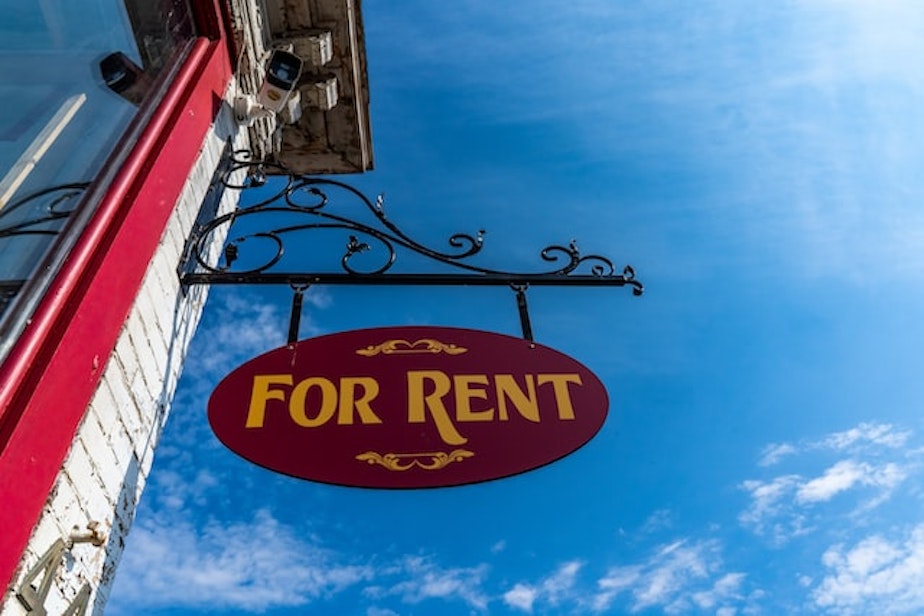Should rent be stabilized? Washington lawmakers hear the pros and cons

A pair of rent stabilization bills are making their way through the Washington State Legislature. Opponents of the bills say that “rent stabilization” is just another term for “rent control.”
“We are not predators, we are housing providers. I’m opposed to this bill,” said landlord Chris Dobler, who argued that the bills would prevent housing providers from recouping rising costs, like property taxes.
On the other side of the issue is Bothell landlord Kraig Peck, who supports the bill. He spoke at a recent press event put on by a small group of landlords in favor of rent stabilization.
“Rent control generally freezes rents indefinitely,” Peck said, adding that rent stabilization is very different than rent control. “Rent stabilization permits landlords to set the rent at any level that they want, before the renter rents from them.”
Rent stabilization allows landlords to raise the rent to whatever they want after a renter leaves a unit. While the renter occupies the unit, however, rent increases would be capped at 3% to 7% per year.
Sponsored
The idea aims to guard against massive rent increases. Critics say it would suppress the production of new housing during a time when the state is greatly in need of it.
The rent stabilization bills not only cover apartments (in buildings 12 years or older), but also scenarios like mobile home parks, where people often own the home, but rent the land it is on.
That’s the situation that Carolyn Hardy found herself in. She owns a mobile home in Aberdeen, but rents the land it's on. She supports the idea of rent stabilization after her landlord dramatically increased the rent, she said.
“Rent increase has turned our joy to dread, worrying that the next increase will force us to find a new place to live, maybe in our car,” Hardy said at a recent hearing on the bills. “We should have bought a bigger car.”
Mike Hoover represents a company that owns mobile home parks. He spoke at a the same hearing.
Sponsored
“There could be clubhouses, there can be common areas, parking, all that sort of thing,” Hoover said. “And we can easily get into situations where we’re contractually obligated to maintain that, but we can’t recoup the money to cover the costs of maintenance.”
Both bills still have a lengthy path through the state Capitol before they could become law.
Read the bills below
- HB 1388 - 2023-24 "Protecting tenants by prohibiting predatory residential rent practices and by applying the consumer protection act to the residential landlord-tenant act and the manufactured/mobile home landlord-tenant act."
- HB 1389 - 2023-24 "Concerning residential rent increases under the residential landlord-tenant act and the manufactured/mobile home landlord-tenant act."




